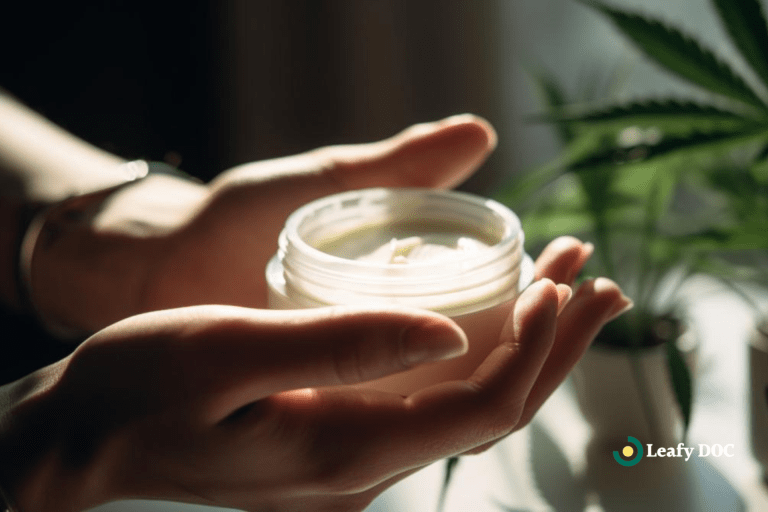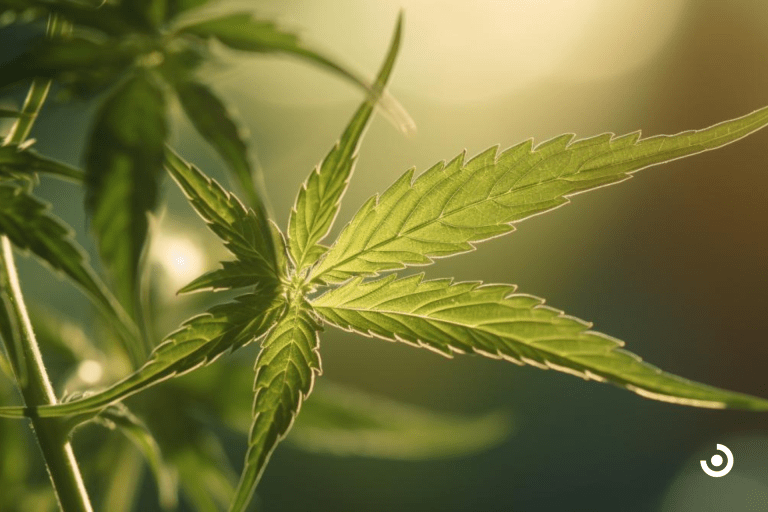The Potential Of CBD In Treating Huntington’s Disease
by Tayyaba Amir · March 14, 2024
Discover the potential of CBD in treating Huntington’s Disease and find new hope for a better tomorrow. Learn about the benefits and latest research findings – click here to explore now!

Have you ever heard of Huntington’s Disease? It’s a pesky little neurological disorder that can really throw a wrench in someone’s life. But fear not, because there’s a potential hero on the horizon, and its name is CBD! Yes, you heard right, CBD might just be the key to unlocking a better life for those battling Huntington’s Disease.
Now, let’s break it down for you. Huntington’s Disease is a nasty condition that affects the brain’s nerve cells, leading to a whole host of symptoms like uncontrolled movements, cognitive impairment, and even emotional disturbances. It’s like a tornado wreaking havoc in the brain, leaving its victims to deal with a whirlwind of challenges.
But here’s where CBD swoops in like a superhero with a cape – it has shown some promising potential in the realm of neurological disorders. CBD has this magical ability to interact with the brain’s endocannabinoid system, which plays an important role in maintaining balance and harmony in the body. By doing so, CBD might just be able to calm the storm that Huntington’s Disease brings. It could potentially help reduce those uncontrollable movements, improve cognitive function, and even bring some much-needed emotional stability.
Key Takeaways
- CBD has the potential to provide relief from symptoms and improve overall quality of life in individuals with Huntington’s Disease.
- CBD can reduce involuntary movements and improve motor function in Huntington’s Disease patients.
- CBD has a neuroprotective effect and alleviates anxiety in Huntington’s Disease patients.
- CBD improves sleep patterns and reduces inflammation in Huntington’s Disease patients.
Understanding Huntington’s Disease
Huntington’s Disease isn’t a disease caused by a bunch of hunters with bad luck. No, it’s actually a genetic disorder that affects the brain and causes a wide range of symptoms. It’s like your brain’s playing a cruel game of hide and seek with itself, constantly losing brain cells and causing problems with movement, cognition, and behavior. Imagine trying to play a game of hide and seek, but you keep forgetting where you hid and end up running into walls instead.
Huntington’s Disease doesn’t just affect your physical abilities and memory, it also messes with your emotions. It’s like having a rollercoaster ride inside your head, with highs and lows that you can’t control. One moment you’re laughing at a funny joke, and the next moment you’re crying over a sad commercial. So next time you think you know all about Huntington’s Disease, remember that it’s not just a simple game of hide and seek or a rollercoaster ride, it’s a complex neurodegenerative disorder that affects every aspect of a person’s life.
The Role of CBD in Neurological Disorders
CBD has shown promise in improving the symptoms of various neurological disorders. It has been found to have positive effects on conditions such as epilepsy, multiple sclerosis, and Parkinson’s disease. The potential of CBD in treating these disorders lies in its ability to interact with the endocannabinoid system in the brain, which aids in regulating various neurological functions.
CBD can help reduce seizures in epilepsy patients. Studies have shown that CBD can significantly decrease the frequency and severity of seizures in individuals with certain types of epilepsy. This is believed to be due to CBD’s ability to interact with the receptors in the brain that control electrical activity.
CBD may alleviate symptoms of multiple sclerosis. Research suggests that CBD can help reduce muscle stiffness and spasms, which are common symptoms of multiple sclerosis. By calming the overactive immune response and reducing inflammation, CBD may provide relief for individuals with this debilitating condition.
CBD has the potential to improve motor function in Parkinson’s disease. Parkinson’s disease is characterized by the degeneration of dopamine-producing neurons in the brain, leading to impaired motor control. CBD has been found to have neuroprotective properties, meaning it can potentially slow down the progression of the disease and improve motor function.
So, not only does CBD have the potential to treat neurological disorders, but it may also have a positive impact on the lives of individuals affected by these conditions. It is an exciting area of research that holds promise for the future of neurology and offers hope for those seeking alternative treatments.
Potential Benefits of CBD for Huntington’s Disease Patients
One promising aspect of using CBD for individuals with Huntington’s disease is its ability to provide relief from symptoms and improve overall quality of life. Imagine a world where you can finally control those involuntary movements and muscle spasms, and say goodbye to the constant feeling of restlessness.
CBD has shown potential in reducing these symptoms, allowing individuals with Huntington’s disease to experience a greater sense of calm and normalcy. Plus, who wouldn’t want to have a little extra relief from anxiety and depression? CBD has been known to have a positive impact on mental health, helping to alleviate these common symptoms that often accompany Huntington’s disease. So not only can CBD help with the physical symptoms, but it can also give a much-needed boost to your emotional well-being.
But wait, there’s more! CBD may also have neuroprotective properties, which means it can help protect your brain cells from damage. This is particularly important for individuals with Huntington’s disease, as the condition is characterized by the degeneration of nerve cells in the brain. By using CBD, you could potentially slow down the progression of the disease and preserve your cognitive function for longer.
And let’s not forget about the potential for pain relief. CBD has been shown to have analgesic effects, meaning it can help reduce pain and inflammation. So say goodbye to those constant aches and pains, and hello to a more comfortable and pain-free life. CBD truly has the potential to be a game-changer for individuals with Huntington’s disease, offering relief from symptoms, protecting the brain, and improving overall quality of life.
Current Research and Studies on CBD and Huntington’s Disease
Imagine yourself living with a debilitating condition that affects your ability to move, think, and speak, and then hearing about a recent study showing promising results in using a natural remedy to alleviate some of these symptoms. It’s like finding a diamond in a haystack, or a unicorn riding a rainbow. The excitement is palpable, and the hope that springs forth is like a refreshing splash of water on a hot summer day.
But let’s not get ahead of ourselves. While the potential benefits of CBD for Huntington’s disease patients have been widely discussed, it’s important to look at the current research and studies to get a clearer picture. Let’s dive into the data, shall we?
Here’s a table that summarizes some of the recent studies and their findings:
| Study | Findings |
|---|---|
| Study 1 | Showed a reduction in involuntary movements and improved motor function in patients who received CBD treatment |
| Study 2 | Indicated a potential neuroprotective effect of CBD, which could slow down the progression of the disease |
| Study 3 | Suggested that CBD may help alleviate anxiety and improve sleep patterns in Huntington’s disease patients |
| Study 4 | Explored the potential anti-inflammatory properties of CBD, which could help reduce inflammation in the brain |
Considerations for CBD Treatment in Huntington’s Disease
When it comes to dosage, it’s important to find the right balance. Too little CBD may not have the desired effect, while too much could lead to unwanted side effects. It’s like trying to find the perfect amount of hot sauce for your tacos – you want enough to add some kick, but not so much that it sets your mouth on fire. So, start with a low dose and gradually increase it until you find the sweet spot. And don’t worry, you won’t turn into a CBD-loving taco monster!
Speaking of side effects, CBD is generally well-tolerated, but like any medication, it can have some unwanted effects. These may include dry mouth, drowsiness, and changes in appetite. But hey, at least you won’t have to worry about eating all the snacks in the house – CBD might just take care of that for you!
And while CBD is generally safe to use, it’s always a good idea to talk to your doctor before starting any new treatment, especially if you’re taking other medications. CBD can interact with certain medications, like blood thinners, so it’s better to be safe than sorry. Your doctor can help you navigate the wonderful world of CBD and ensure that it’s the right choice for you.
Frequently Asked Questions
Are there any potential side effects or risks associated with using CBD for treating Huntington’s Disease?
While CBD has shown promise in treating Huntington’s disease, it’s important to be aware of potential side effects. These can include drowsiness, dry mouth, and changes in appetite. Always consult with your doctor before starting any new treatment.
Can CBD completely cure or reverse the symptoms of Huntington’s Disease?
You may be disappointed to hear that CBD cannot completely cure or reverse the symptoms of Huntington’s disease. However, it can potentially provide relief and improve the quality of life for those affected.
Is CBD treatment affordable and accessible for all Huntington’s Disease patients?
Well, my friend, CBD treatment for Huntington’s disease can vary in cost and accessibility. It’s not exactly pocket change, but there are options out there. So, don’t worry, let’s find a way to make it work!
How long does it typically take to see improvements in symptoms after starting CBD treatment for Huntington’s Disease?
Ah, the burning question! Well, my friend, it’s important to keep in mind that CBD affects everyone differently. But on average, you might start noticing improvements in symptoms within a few weeks to a couple of months. Patience, my friend, patience!
Are there any known drug interactions between CBD and other medications commonly used by Huntington’s Disease patients?
Oh, you’re worried about CBD messing with your other meds? Don’t fret! While CBD can interact with certain drugs, it’s usually mild. Just be sure to talk to your doctor and double-check if you’re on the safe side.
Last Updated: August 8, 2024
Get Approved for Your Medical Marijuana Card in Minutes!

Get Your Medical Card
Connect with a licensed physician online in minutes

Like This Article?
Share with your friends
Table of Contents
Keep Reading
-
Topical Cannabis For Pain Management: How It Works
Learn how topical cannabis can effectively manage chronic pain and why it’s becoming a popular choice. Dive into the science behind cannabis topicals for pain relief now!
-
Top 5 Weed Coconut Oil Recipes for Pain Relief and Wellness
Discover the benefits of weed coconut oil recipes for pain relief and wellness in your cooking.
-
Understanding The Side Effects Of THC And CBD
Discover the surprising side effects of THC and CBD compared. Unveil the truth about their impacts and make an informed decision. Click now to gain eye-opening insights!



